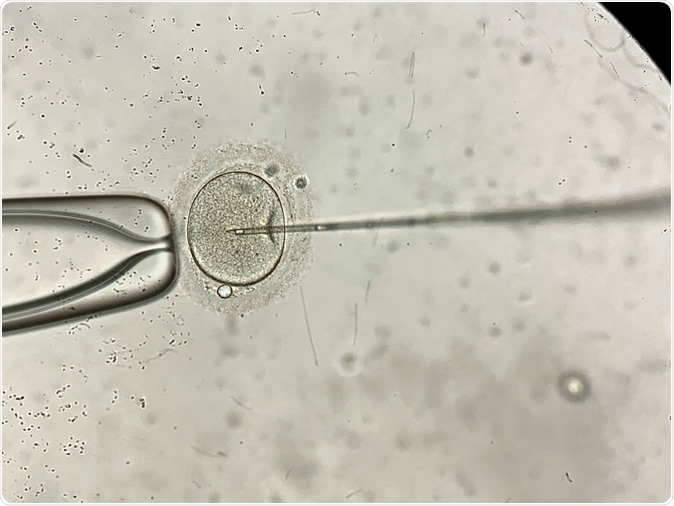Cancer can take a toll on a woman’s body, with many unable to conceive after rigorous treatments. In some cases, especially for women who have no children yet, they opt for egg cell freezing so they can still become pregnant after treatment. Now, for the first time, a woman has given birth to a baby from frozen immature eggs harvested from her five years ago.
The patient, who gave birth at Antoine Béclère University hospital in Clamart near Paris, was diagnosed with breast cancer five years ago. She was offered fertility counseling when she was about to have chemotherapy at age 29. She was advised at the time that many women who underwent cancer treatments became infertile. Before treatment, doctors harvested immature eggs from her ovaries, matured in the laboratory, and frozen for use for later.
The doctors performed In vitro maturation (IVM), a novel procedure to enable the eggs to develop and mature in the laboratory. The doctors froze the eggs for years through vitrification, a process that frees the cells quickly in nitrogen until the woman is ready to become pregnant.

Macro view through the microscope at process of the in vitro fertilization of a female egg inside IVF dish in the laboratory. Image Credit: Bezikus / Shutterstock
First birth from IVM
For years, women received the advice of opting for having their immature eggs frozen. However, no births had been reported, not until now.
The women had chemotherapy for five years and had been on remission. When she decided to have a baby, she had problems with conceiving. She opted to go back to the hospital, where her eggs were frozen. The frozen eggs were thawed and were fertilized. The doctor transferred one embryo into the woman’s uterus for implantation and pregnancy.
After nine months, the woman gave birth to a healthy baby, named Jules, on July 6, 2019. For the duration of the pregnancy, the woman had no issues and difficulties. She successfully gave birth to the first baby born through freezing immature eggs without problems, and she reached her term pregnancy.
Last resort
For the doctors, IVM is the last resort for women who wants to freeze their eggs. Typically, women who want to freeze their eggs use IVF when they decide they want to have babies. These women need to go through many weeks of hormone treatments.
The most reliable procedure is ovarian stimulation. But for the woman, this is not an option since she has cancer and needs urgent treatment. Further, there were fears that the stimulation may trigger cancer.
“IVM enables us to freeze eggs or embryos in urgent situations or when it would be hazardous for the patient to undergo ovarian stimulation. Besides, using them is not associated with a risk of cancer recurrence,” Professor Michaël Grynberg, head of the Department of Reproductive Medicine and Fertility Preservation at the Antoine Béclère University Hospital, said.
“We are aware that eggs matured in the lab are of lower quality when compared to those obtained after ovarian stimulation. However, our success with Jules shows that this technique should be considered a viable option for female fertility preservation, ideally combined with ovarian tissue cryopreservation as well,” he added.
The team also suggested that fertility preservation should always be considered as part of the treatment of young cancer patients, so they can have an option to have children in the future.
Journal reference:
First birth achieved after fertility preservation using vitrification of in vitro matured oocytes in a woman with breast cancer Grynberg, M. et al. Annals of Oncology, https://www.annalsofoncology.org/article/S0923-7534(20)35923-8/fulltext